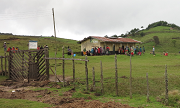Combating antibiotic resistance using guidelines and enhanced stewardship in Kenya: a protocol for an implementation science approach.
Antimicrobial resistance (AMR) is a growing problem globally especially in Sub-Saharan Africa including Kenya. Without any intervention, lower/middle-income countries (LMICs) will be most affected due to already higher AMR levels compared with higher income countries and due to the far higher burden of diseases in the LMICs. Studies have consistently shown that inappropriate use of antimicrobials is the major driver of AMR. To address this challenge, hospitals are now implementing antibiotic stewardship programmes (ASPs), which have been shown to achieve reduced antibiotic usage, to decrease the prevalence of resistance and lead to significant economic benefits. However, the implementation of the guideline is highly dependent on the settings in which they are rolled out. This study, employing an implementation science approach, aims to address the knowledge gap in this area and provide critical data as well as practical experiences when using antibiotic guidelines and stewardship programmes in the public health sector. This will provide evidence of ASP performance and potentially contribute to the county, national and regional policies on antibiotics use.
AMR NEWS
Your Biweekly Source for Global AMR Insights!
Stay informed with the essential newsletter that brings together all the latest One Health news on antimicrobial resistance. Delivered straight to your inbox every two weeks, AMR NEWS provides a curated selection of international insights, key publications, and the latest updates in the fight against AMR.
Don’t miss out on staying ahead in the global AMR movement—subscribe now!







